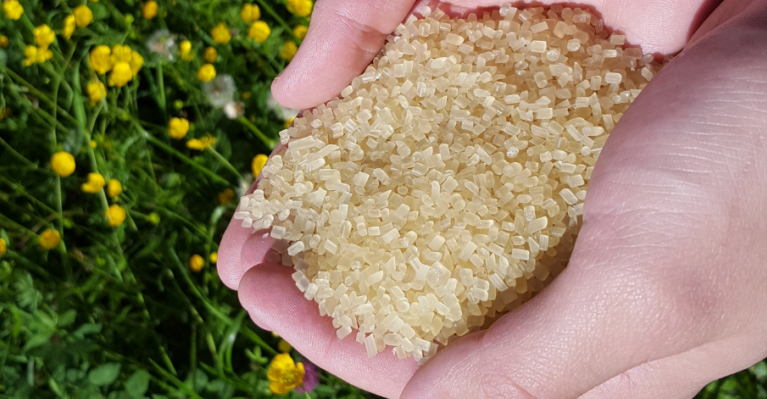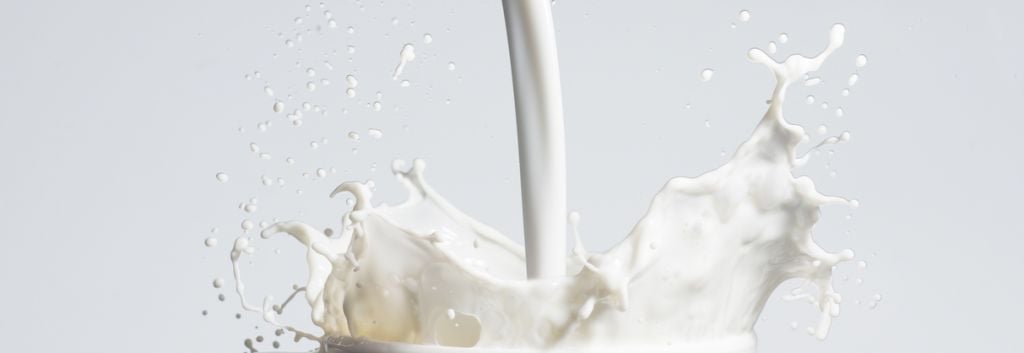Can we make plastics out of milk byproducts? The startup Lactips, based near Lyon, is getting ready to make this special kind of bioplastic a commercial reality with its first application, wrapping for detergents.
Pun intended: Lactips’ motto is “the milky way of plastics,” and that’s what the startup has been developing since its foundation in 2014. However, the process of making plastic out of casein, the main type of protein in milk, traces further back. The idea started out as a research project at the University of Saint-Etienne, which was under development for 7 years until it “came to life” as a spin-off. Another milestone is now on the horizon for this innovative bio-based plastic. Lactips hopes to bring it to the first commercial application, the plastic wrapping around dishwasher tabs, later this year.
This first choice of application showcases the promising characteristics of the milk bioplastic. Lactips develops it into thermoplastic pellets, which means it can be easily molded into films with the same kind of machinery used today. Because it’s soluble in water, the wrapping disappears during the washing. The components, made out of milk, are not toxic and degrade naturally in the environment.

Therefore, Lactips checks both the biobased and biodegradable requirements but, as we have covered before, filling those doesn’t automatically grant sustainability. Lactips currently uses milk powder produced in Eastern Europe, but it’s looking into using milk waste that is unfit for human consumption. Water solubility is also a significant improvement over the more common biodegradable plastics, which often still require compostable conditions or some years to disappear. One of the main problems is accumulation in the oceans, which has spurred other types of solutions like potato waste PHA.
A plastic that disappears in water will not take over all packaging, for obvious reasons (great water bottle!), but for bioplastics it’s all about finding the right niche, such as bioplastic toys. In Lactips’ case, the startup is looking into applications with harsh or toxic chemicals, including pesticides, where small packaging is necessary but disposing of the plastic with residues is a problem. The pellets can also be produced to be food-grade and edible, so there are potential applications for novel packaging of food and medicine.
This milk-based bioplastic looks like a promising example of looking into biological waste as a source for materials. According to Plastic News, Lactips is already looking beyond detergents, and has rough plans to build a manufacturing site of its own by the end of 2018, in the same area of France.
Images from somchaij/Shutterstock and Lactips





